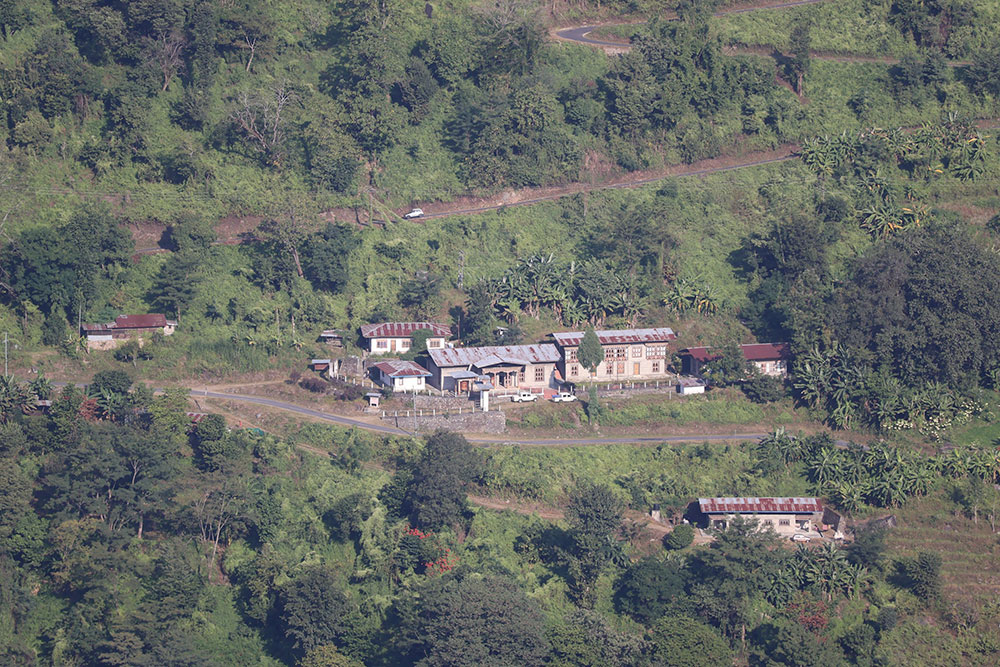Supported by SNV Bhutan’s leadership training, local governments are integrating gender equality and disability inclusion into planning while promoting active participation from women, girls, and vulnerable groups
YK Poudel
Dagana—In a progressive step towards inclusive development, the local government of Dagana is prioritising gender equality and disability inclusion across public services and infrastructure.
One of the most visible signs of this transformation is the construction of a new Early Childhood Care and Development (ECCD) centre in Daragaon, Lhamoizingkha, which is set to open by the end of this year.
This centre is designed with accessibility in mind, featuring wheelchair ramps, railings, and other facilities to ensure it is welcoming to all, including persons with disabilities (PWDs).
Lhamoizingkha Dungkhag, which encompasses three gewogs—Karmaling, Nichula, and Lhamoizingkha—has made major strides in becoming more disability-friendly.
With a population of 4,674, including 124 PWDs, the dungkhag is working to ensure that public infrastructure, from administration offices to schools and hospitals, are fully accessible to everyone.
Inclusive leadership and gender empowerment
Surja Bahadur Limboo, the Gup of Lhamoizingkha gewog, emphasised that transformative leadership is key to the changes underway in the community. “At the local level, transformative leadership means empowering women, ensuring clean water and sanitation, engaging PWDs in decision-making, and building inclusive infrastructure,” he said.
The local government’s push for inclusivity is supported by SNV Bhutan, which has been conducting transformative leadership training for local government officials.
Through these training programmes, local leaders are learning how to incorporate gender equality and disability considerations into their planning and decision-making.
Jigme Singye, Lhamoizingkha Dungpa, highlighted the dungkhag’s commitment to fostering inclusive participation. Women, girls, PWDs, and other vulnerable groups are encouraged to actively engage in public meetings, community gatherings, and decision-making processes.
“We ensure that women’s voices are heard in the budgeting process, and technical considerations in infrastructure projects are prioritized to make them inclusive,” he said.
This focus on gender equality is reflected in ongoing efforts to ensure that all public spaces, including the new ECCD center, are disability-friendly and accessible to all.
The dungkhag is also focused on integrating women fully into community-led initiatives and decision-making forums, where their involvement can help address unique needs and promote gender equality at all levels.
Dagana Dzongkhag is one of the four dzongkhags where SNV Bhutan is piloting the transformative leadership programme.
Operating in collaboration with government, SNV has been a driving force in Bhutan’s development for over three decades. The organisation works at the national level to shape policies, establish standards, and create enabling environments that support sustainable outcomes.
According to its 2030 Strategy, SNV Bhutan is committed to strengthening the agency and capacity, and improving the rights and well-being of those facing the most significant challenges of inequity and poverty, enabling more sustainable and equitable lives for all.
Surja Bahadur Limboo noted that although there have been lapses in past planning processes, the recent leadership training has helped shift the mindset of local officials.
“The transformative leadership training was timely; it has changed the mindset of participants on how they view, plan, and implement projects,” he said. “The gewog now monitors and strictly advocates for hygienic, gender-inclusive, disability-friendly, and resilient structures.”
The gewog will soon consult with Lhamoizingkha Hospital to construct outdoor toilets that are gender and disability-inclusive.
Clean water and sanitation
Clean water and sanitation remain a priority for the dungkhag, which has been actively addressing challenges related to water access and hygiene.
Punam Rai, administration officer of Kana Gewog, said that the gewog is making necessary changes in its annual planning, particularly in making existing infrastructure more accessible and inclusive.
“In addition to the existing plans, we are also going to start constructing a ramp at Khagochen primary health center and procure bedside toilets for two PHCs under Kana Gewog,” she said. “We are also prioritising the provision of reliable, safe, and clean water supply in all the villages, supported by the Gewog Annual Budget, and we have secured project funds.”
She added that the inputs from the two workshops she attended have helped the local government prioritise services for persons with disabilities equally with the rest of the population.
“In addition to the training and workshops, SNV Bhutan’s allocation of funds for such technical assistance in areas that need support would be beneficial for the general public in meeting their mandates,” she said.
Water safety and management
Surja Bahadur Limboo noted that the dungkhag does not yet have a water user guideline to define and guide practices for clean water and sanitation. “However, the gewog has proposed a multi-sectoral and business community meeting soon to discuss the usage of the Water Treatment Plant, inclusive and resilient infrastructure development, and other matters,” he said.
Man Singh Lepcha, Health Assistant at Lhamoizingkha Hospital, said that, while challenges remain in some chiwogs, the WASH advocacy programme is yielding positive results. “We have seen a noticeable decrease in waterborne diseases,” Lepcha said. “Community meetings, often led by women and PWDs, focus on improving sanitation practices and raising awareness about water safety.”
To further support these efforts, the dungkhag has implemented regular water testing and source protection measures to ensure water safety. “By involving women in water management committees and decision-making bodies, we are building more resilient communities that can better manage water resources in the face of climate challenges,” said Dungpa Jigme Singye.
This story is produced in collaboration with SNV Bhutan with support from the Royal Government of Bhutan, Department of Foreign Affairs and Trade, Australian Government, and the Water for Women Fund.


